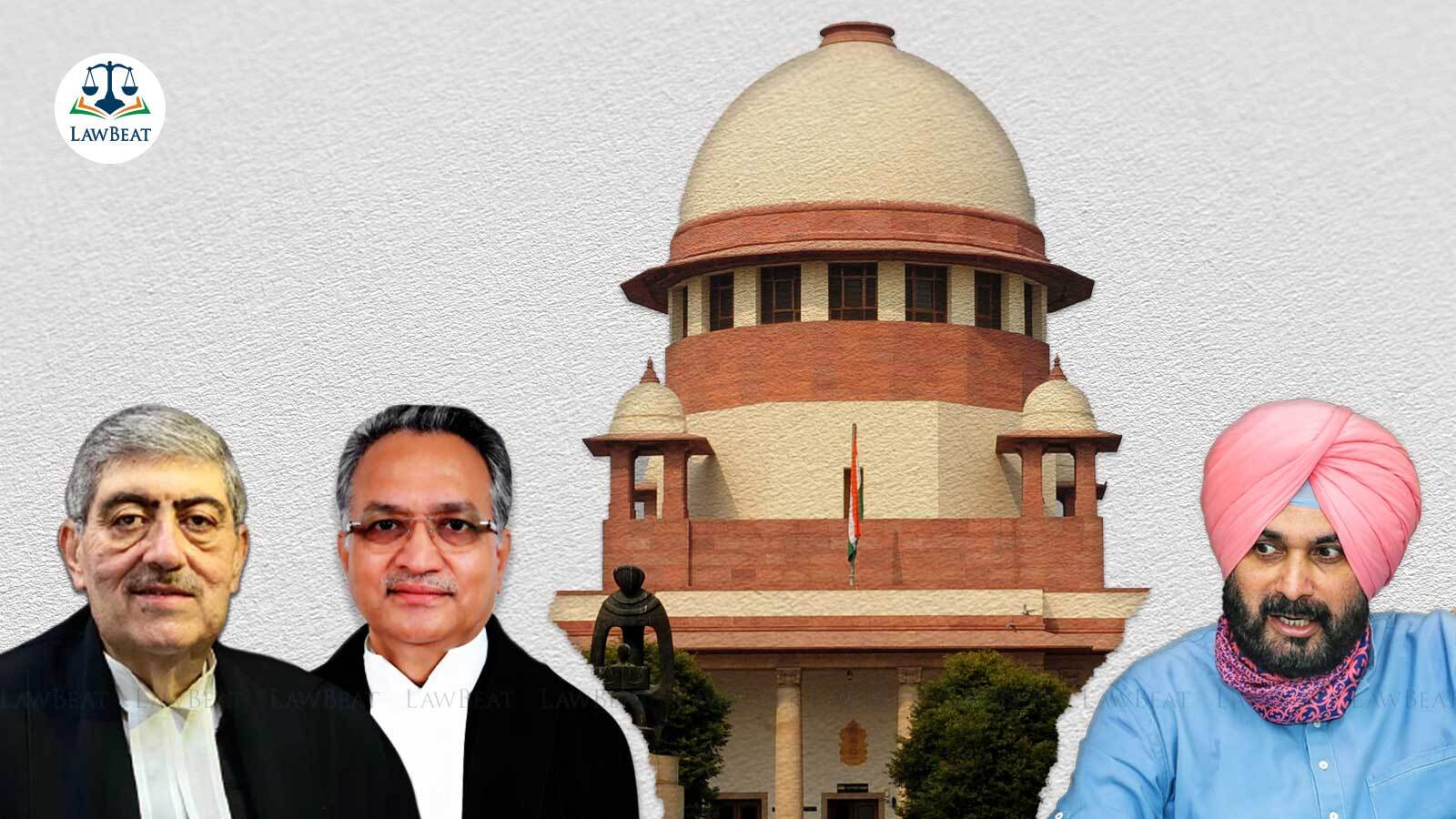Hand of boxer or cricketer can also be a weapon in itself: Supreme Court imposes 1 yr sentence on Navjot Singh Siddhu

The Supreme Court while imposing a sentence of one-year rigorous imprisonment on Navjot Singh Siddhu in a road rage death case, opined that "the hand can also be a weapon by itself where say a boxer, a wrestler or a cricketer or an extremely physically fit person inflicts the same...”
Pointing out that punishment under Section 323 of the IPC has been prescribed as a sentence of a term which may extend to one year or a fine which may extend to Rs.1,000/- or both, Court noted that only fine had been imposed in Siddhu's case.
"In the given factual scenario, grave error could be said to have been committed on the issue of sentence by not punishing with imprisonment of any term whatsoever," Court stated.
A bench of Justices AM Khanwilkar and SK Kaul noted that material aspects such as the physical fitness of Siddhu as he was an international cricketer, who was tall and well-built and was aware of the force of a blow that even his hand would carry, had to be taken into consideration while awarding sentence.
“The blow was not inflicted on a person identical physically placed but a 65 year old person, more than double his age. Respondent No.1 cannot say that he did not know the effect of the blow or plead ignorance on this aspect. It is not as if someone has to remind him of the extent of the injury which could be caused by a blow inflicted by him…”, further said the division bench.
Court was also of the opinion that to some extent it had been indulgent in ultimately holding Siddhu guilty of an offence of simple hurt under Section 323 of the IPC.
Talking about the necessity of maintaining a reasonable proportion between the seriousness of the crime and the punishment, Court said,
“While a disproportionately severe sentence ought not to be passed, simultaneously it also does not clothe the law courts to award a sentence which would be manifestly inadequate, having due regard to the nature of the offence, since an inadequate sentence would fail to produce a deterrent effect on the society at large.”
It was further remarked by the bench that Court must keep in mind that any undue sympathy to impose an inadequate sentence would do more harm to the justice system and undermine the public confidence in the efficacy of law.
Court also relied on the aspects of sentencing and victimology as reflected in the following ancient wisdom:
“यथावयो यथाकालं यथा प्राणंच ब्राह्मणे।
प्रायश्चितं प्रदातव्यंब्राह्मणैर्धर्धपाठकै ैः ।
येन शुध्ददर्वाप्नोश्चत न च प्राणैश्चवधयुज्यते।
आश्चतिंवा र्हतीं यश्चत न चैतद् व्रतर्ा श्चदशेत ।
(The person dispensing justice as per Dharmashastra should prescribe a penance appropriate to the age, the time and strength of the sinner, the penance being such that he may not lose his life and yet he may be purified. A penance causing distress should not be prescribed.)
The bench further remarked that it was not going into how the investigation proceeded initially, how the court had to intervene to see that the relevant people are charged, the manner of leading of evidence, the hesitancy of doctors etc.
“… review applications/petitions are allowed to the aforesaid extent and in addition to the fine imposed we consider it appropriate to impose a sentence of imprisonment for a period of one year rigorous imprisonment to be undergone by respondent No.1”, ordered the bench.
Case Title: JASWINDER SINGH (DEAD) THROUGH LEGAL REPRESENTATIVE vs. NAVJOT SINGH SIDHU & ORS
